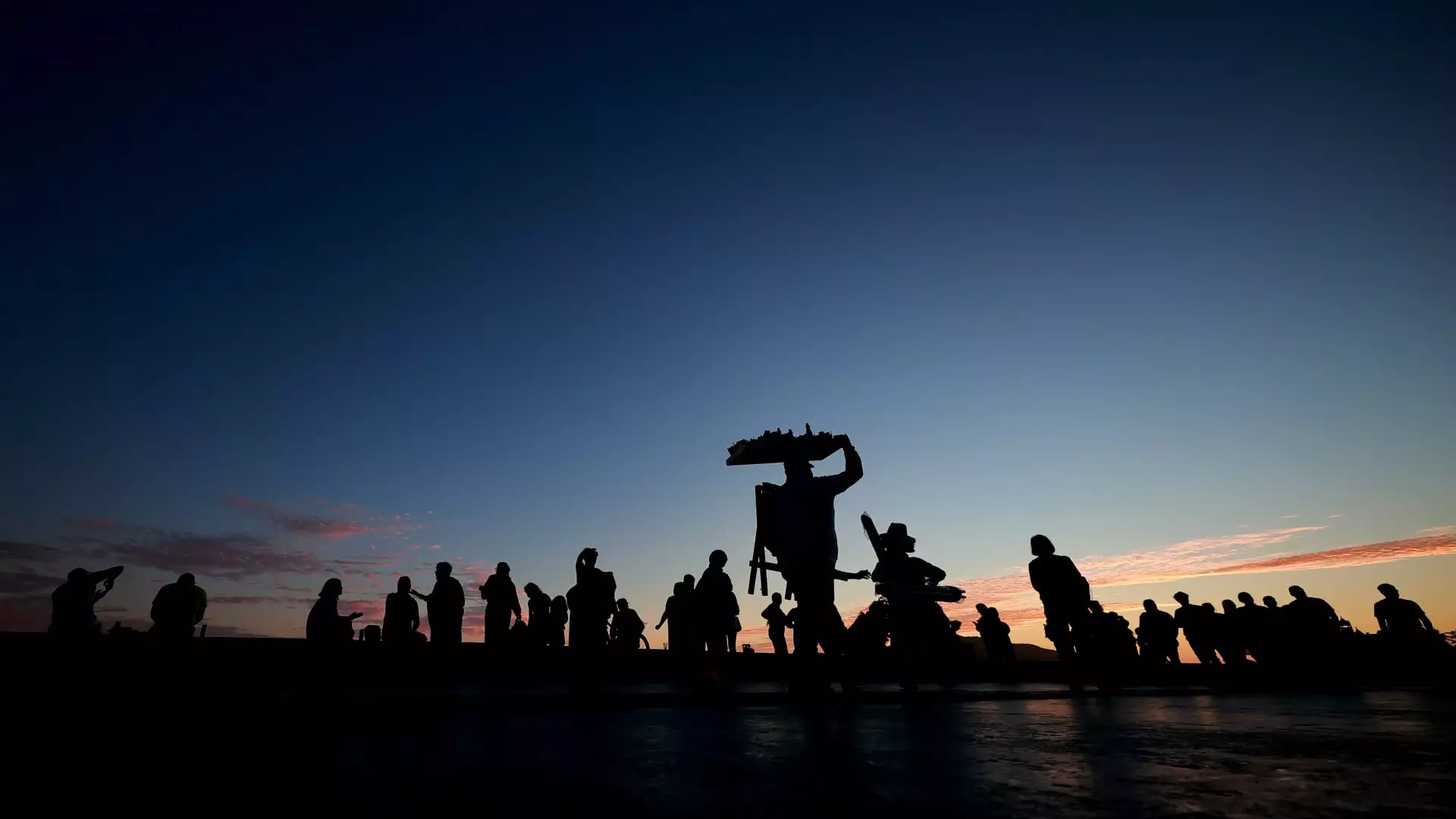Monday’s solar eclipse has created a surge in demand for flights to airports in various parts of the United States. Smaller airports, such as Burlington International Airport in Vermont and Southern Illinois Airport in Murphysboro, Illinois, experienced a significant increase in traffic as a result of the celestial event. The Federal Aviation Administration reported that arriving flights at airports from Burlington, Vermont, to southern Illinois were briefly halted on Monday morning ahead of the total eclipse. This disruption is typically seen in big-city hubs due to bad weather and heavy traffic, but the high demand for prime viewing locations of the eclipse caused unexpected congestion at smaller airports.
The influx of flights led to runway closures and parking jams at airports like Southern Illinois Airport. Alyssa Connell, head of operations at the airport, revealed that they had to close one of their three runways to park planes. The airport had reached its maximum threshold with 230 small propeller aircraft and about 45 larger jets and turboprops. This was an unprecedented number of aircraft for the airport, highlighting the impact of the solar eclipse on smaller airports across the country.
Airports like Burlington International Airport had to make arrangements to accommodate the increased traffic resulting from the eclipse. Dave Carman, deputy director of aviation operations at the airport, stated that they were scheduled to receive between 100 and 130 general aviation planes on Monday, in addition to some scheduled commercial passenger jet traffic. The airport had not seen such a high volume of flights in a single day before. The FAA also recognized the eclipse as a major event during its morning planning call at its command center in Warrenton, Virginia, underscoring the importance of preparation and coordination to handle the surge in air traffic.
Airlines like Delta Air Lines and United Airlines capitalized on the solar eclipse by offering special eclipse flights and promoting routes that would provide passengers with views of the phenomenon. Delta Air Lines sold special eclipse flights from Dallas/Fort Worth International Airport to Detroit and from Austin, Texas, to Detroit, allowing passengers to witness the eclipse from the sky. United Airlines reported a significant increase in bookings to cities near the eclipse’s path, such as San Antonio, Cleveland, and Little Rock, compared to the same dates in the previous year. This proactive response from airlines further contributed to the heightened activity at smaller airports.
The solar eclipse had a notable impact on smaller airports across the US, resulting in increased demand, runway closures, and parking congestion. Airports and airlines had to make necessary adjustments to accommodate the surge in air traffic and capitalize on the unique opportunity presented by the celestial event. The eclipse served as a reminder of the significance of strategic planning and adaptability in the face of unforeseen challenges in the aviation industry.

